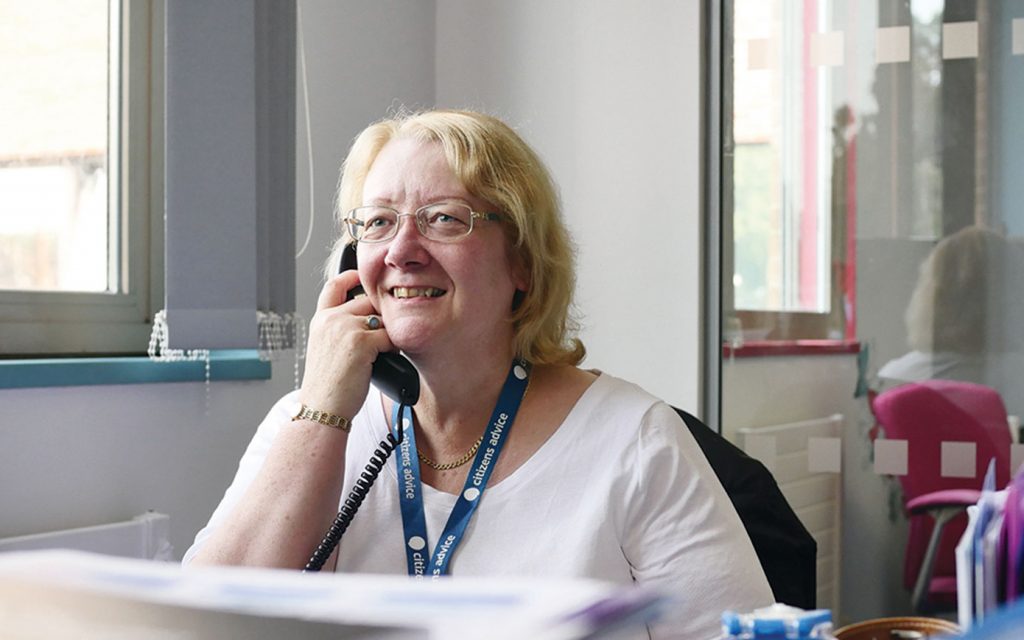When you’re living with a brain tumour or supporting someone who is, it can be hard to prioritise things like diet, physical activity and wellbeing. Though January is often a time when people look ahead to the next 12 months and make resolutions to improve these areas of their lives, it’s important to look after yourself at this time of year and make sure you don’t try to take on too much.
So, in this blog, we’ve not only shared some of the top ways you can take care of your emotional, physical and psychological needs in 2020, but also some of the ways we can support you in this – every step of the way.
1. Keep on top of things with BRIAN
BRIAN, our online app, was developed to help people cope with a brain tumour. It can help you – and those supporting you – to understand how you’re doing and make better informed decisions.
Among many other features, BRIAN allows you to track quality of life, including symptoms and emotions, as well as treatments, appointments, medications and side-effects. It’s an invaluable tool if you’re looking for ways to better manage your brain tumour experience in 2020.
Download our BRIAN app on the App Store Download our BRIAN app on Google Play
Click here to visit the BRIAN website
2. Look after your wellbeing
We all know the festive and New Year season can be a tiring time. All too often our own wellbeing comes low down the priority list and we neglect to take the small steps that could give us a much-needed boost.
But there are some quick and simple ways you can improve your wellbeing in 2020 and make this year the best it can be. Take a look at these 12 tips from clinical neuropsychologist Dr Sophie Williams and our community.
3. See if you’re entitled to financial support
If you’re living with a brain tumour or are caring for someone who is, you may be entitled to certain financial benefits, depending on your circumstances. If you’re already using BRIAN, you use the Benefits Checker in BRIAN to see what you may be entitled to.
Or, you can book an appointment for our specialist Benefits and Money Clinic. Our experienced advisors can help you access any financial support you may be entitled to, as well as give advice on how to make the most of your money this year.

Expert benefits & money advice
Last year our Benefits and Money Clinic helped 178 members of our community claim over £450,000!
4. Discover the benefits of exercise
The new year is often a time when people strive to become more active. But you don’t need to do vigorous exercise to feel the benefits of physical activity – things like walking, swimming or gardening are all great ways to keep moving and can give you a mental, as well as a physical, boost.
Why not start by learning more about the benefits of exercise, including our top tips for beginners?
We also have advice from specialist physiotherapists in neuro-oncology, Jenny Collins and Serena Hartley, on taking part in physical activity when you’re living with a brain tumour.
5. Manage your diet
Whether you’re having difficulty with your diet due to your brain tumour or its treatments, or are simply looking to boost your wellbeing and make healthier choices in 2020 – we have a wealth of information and handy tips for you.
Take time to find out more about the benefits of a balanced diet and get some guidance on how to manage if you’re having side-effects that affect your eating. We also spoke to an expert dietitian, Monika Siemicka at Guy’s Hospital in London, to get her top tips for eating well when you’re going through treatment.
6. Talk it out
You’ve probably heard the saying, “a problem shared is a problem halved”. Opening up about your feelings and experiences can make a significant difference to your wellbeing, as Dr Katherine Carpenter, Consultant Clinical Neuropsychologist, explains.
It doesn’t have to be someone close to you; meeting and chatting with others online can be a real comfort. Our Facebook Support Communities offer a safe online space where you can connect with others who know what you’re going through.
We’re here for you every step of the way too. Our support team can answer your questions, provide a listening ear when you need it and point you in the direction of other services when appropriate.

Join our community on Facebook
Our closed Facebook groups are a great place to connect with other people affected by a brain tumour and share your experiences.
7. Cope better with change
Change is a constant presence in our lives. But when you’re living with a brain tumour diagnosis or supporting someone who is, you’re likely to face more change and uncertainty than you did before. Many people tell us it can be a struggle to adapt and find their ‘new normal’.
If you’re looking for tips on coping better with change in 2020, read our interview with Charlotte Robinson, Clinical Nurse Specialist at King’s College Hospital. She covers a number of things you can do to make change more manageable and improve your day-to-day life.
We hope you find these suggestions helpful, and we’re wishing you all the best for the coming year!
Remember, if you need support in the New Year, you can contact our Information and Support Line by call us on 0808 800 0004, emailing our support team or starting a live chat.
